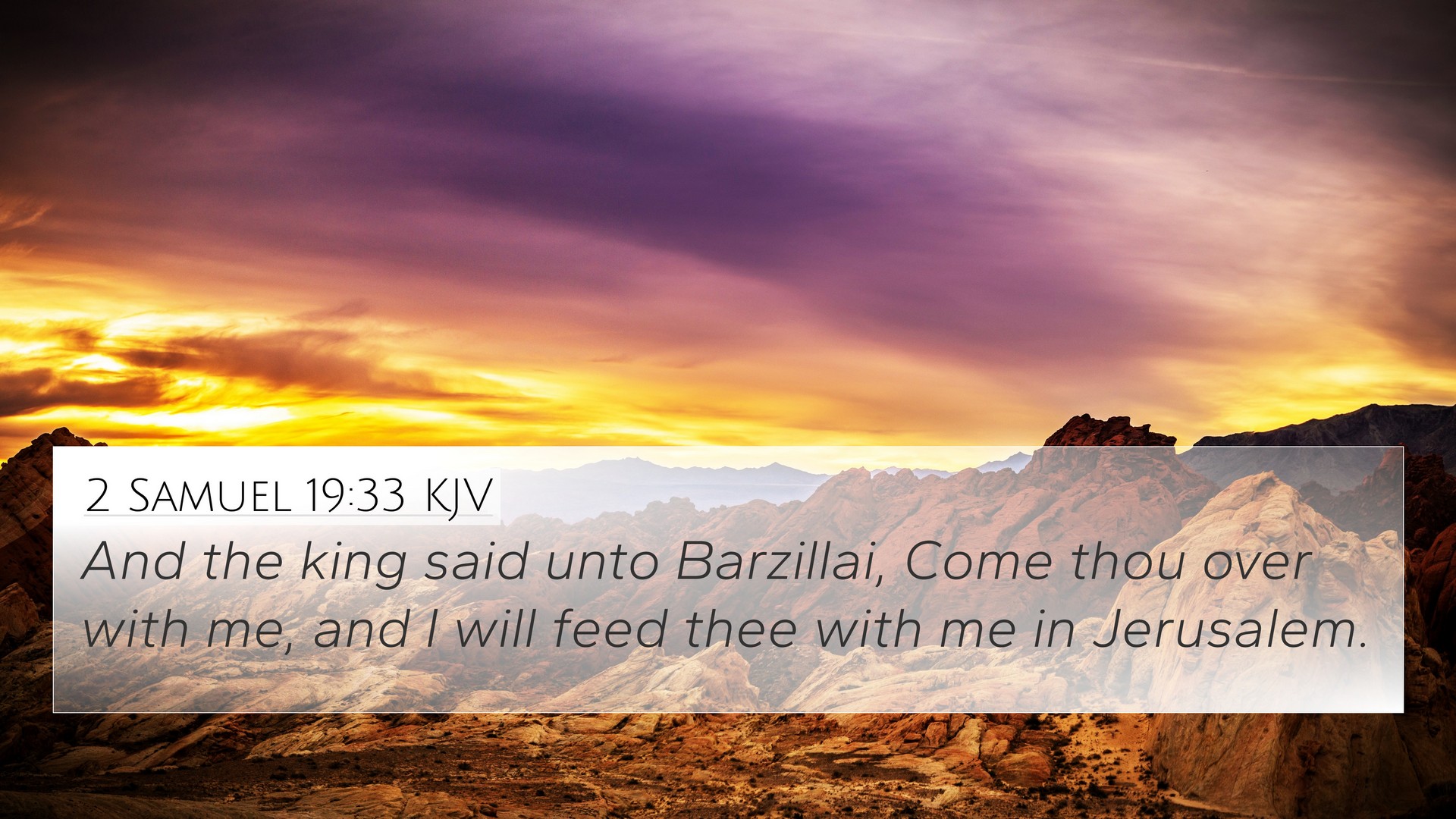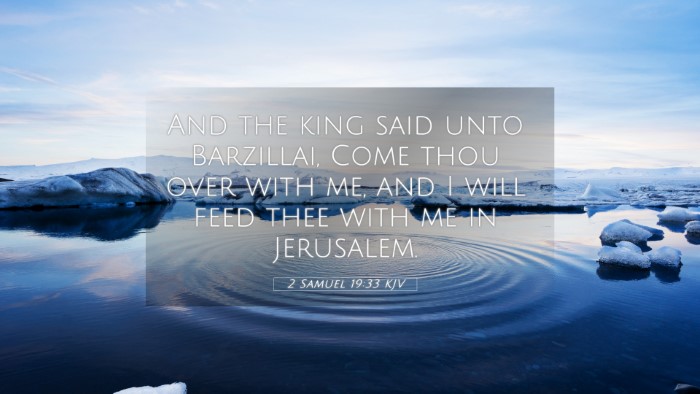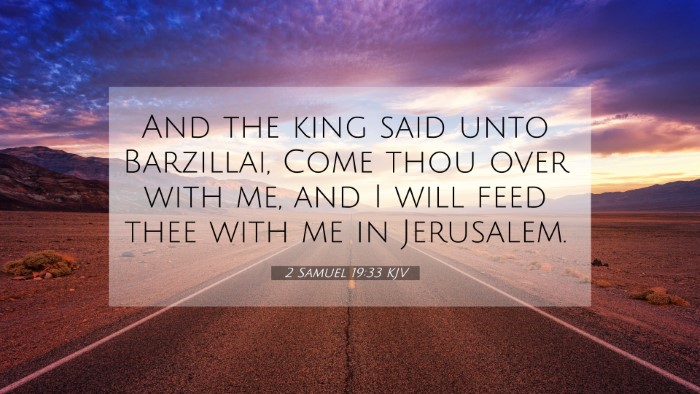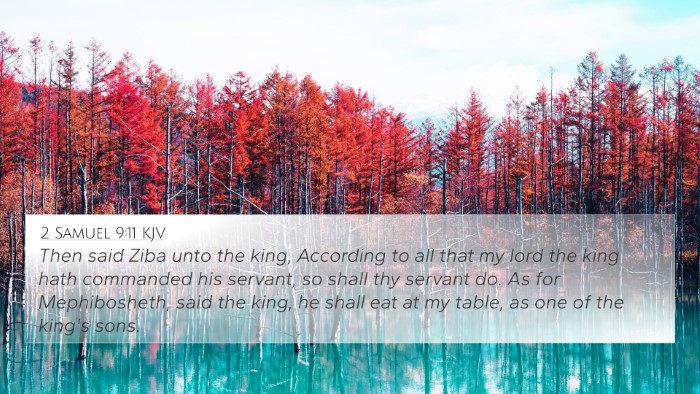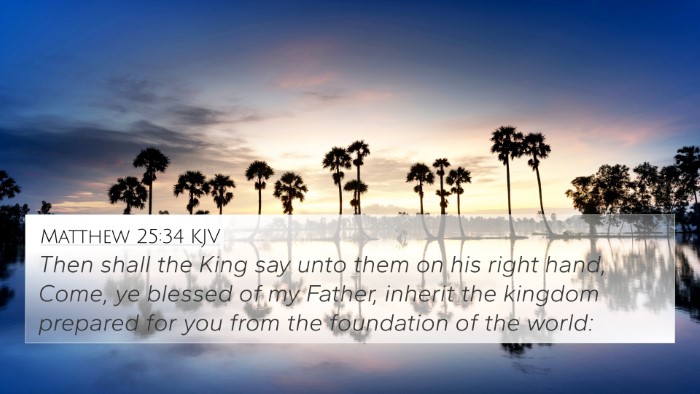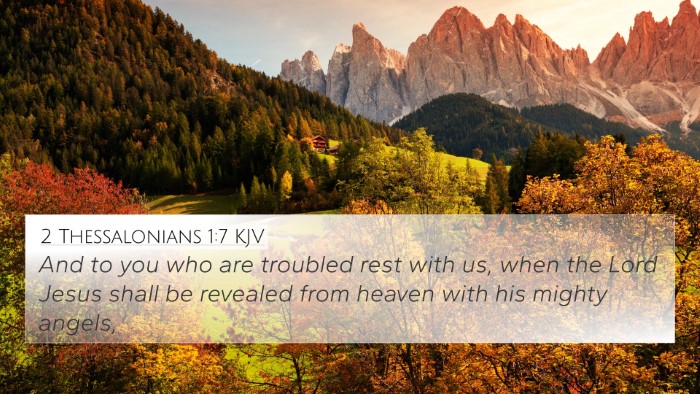Understanding 2 Samuel 19:33
Verse: "And the king said to Barzillai, 'Come across with me, and I will provide for you in Jerusalem, for you shall eat bread at my table.'"
In 2 Samuel 19:33, King David speaks to Barzillai, acknowledging the loyalty and service Barzillai rendered during David's time of distress when he was fleeing from Absalom. David's invitation signifies not only gratitude but also a desire to honor Barzillai with a place at the royal table, indicating a close relationship and recognition of Barzillai’s contributions.
Exegesis and Commentary Insights
This verse is rich with theological significance and interpersonal dynamics. The following insights drawn from public domain commentaries help unravel its meaning:
- Matthew Henry: David's gesture towards Barzillai exemplifies the kindness of a king who remembers his faithful supporters. It highlights the concept of reward for loyalty and service, suggesting that true noblesse lies in recognizing and repaying those who stand by you in troubled times.
- Albert Barnes: Barnes emphasizes the socio-political context of the invitation. Barzillai, being of advanced age and significant wealth, represents a key figure in the support structure of David’s throne. The inclusion of Barzillai at the king's table symbolizes a political alliance strengthened by personal loyalty.
- Adam Clarke: Clarke elaborates on the imagery of "eating bread at my table," illustrating a profound invitation. This act denotes intimacy, friendship, and a shared life, which in ancient cultures often implied a covenant relationship.
Thematic Connections
The verse connects to broader biblical themes of loyalty and divine provision. It resonates with several notable scriptural accounts:
- David's Kindness: This moment mirrors David's previous kindness toward Mephibosheth (2 Samuel 9:7), illustrating how David sought to maintain ties with those who had served his family.
- God’s Provision: The invitation can be paralleled with God’s provision for His people (Psalm 23:5), where a table is set in the presence of enemies, showcasing God’s protection and generosity.
- Loyalty Rewarded: The relationship between David and Barzillai reflects the biblical principle found in Proverbs 19:17 that those who are kind to the poor lend to the Lord and will be repaid.
Cross-References
This verse is closely tied to several other scripture passages:
- 2 Samuel 9:1-13: David's kindness to Mephibosheth.
- 1 Samuel 25:32-35: David’s generosity towards Abigail.
- Psalm 23:5: The Lord’s provision and care.
- Genesis 40:20-23: The restoration of Joseph's family, highlighting loyalty and providence.
- Matthew 25:35-40: Jesus emphasizes caring for the needy as service to Himself.
- Luke 14:12-14: Jesus teaches about inviting the marginalized to our tables.
- Romans 12:13: Paul encourages sharing with others in need.
Practical Applications
Understanding 2 Samuel 19:33 encourages readers to recognize the significance of loyalty and gratitude in relationships:
- Recognizing Loyalty: Like David, we should honor those who support and stand by us, ensuring they know their contributions are valued.
- Invitation to Fellowship: By extending our tables to include those in need, we emulate Christ's love and inclusivity.
- Modeling Generosity: This passage prompts us to consider how we can be generous and supportive within our communities.
Conclusion
2 Samuel 19:33 serves as a rich text that emphasizes the virtues of loyalty, gratitude, and provision. Barzillai's example provides a model for recognizing and blessing those who have supported us through hardship. By cross-referencing this passage with others throughout Scripture, we gain a deeper understanding of God's call for his people to live out principles of kindness and communal support.
